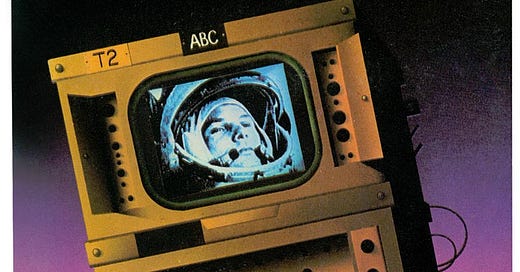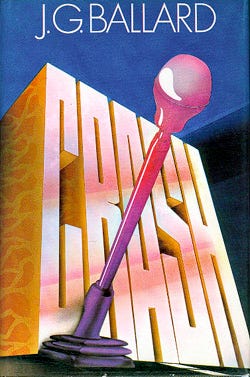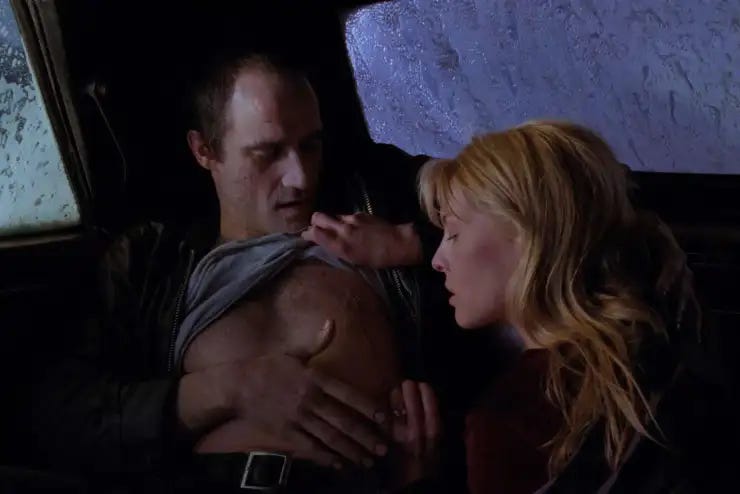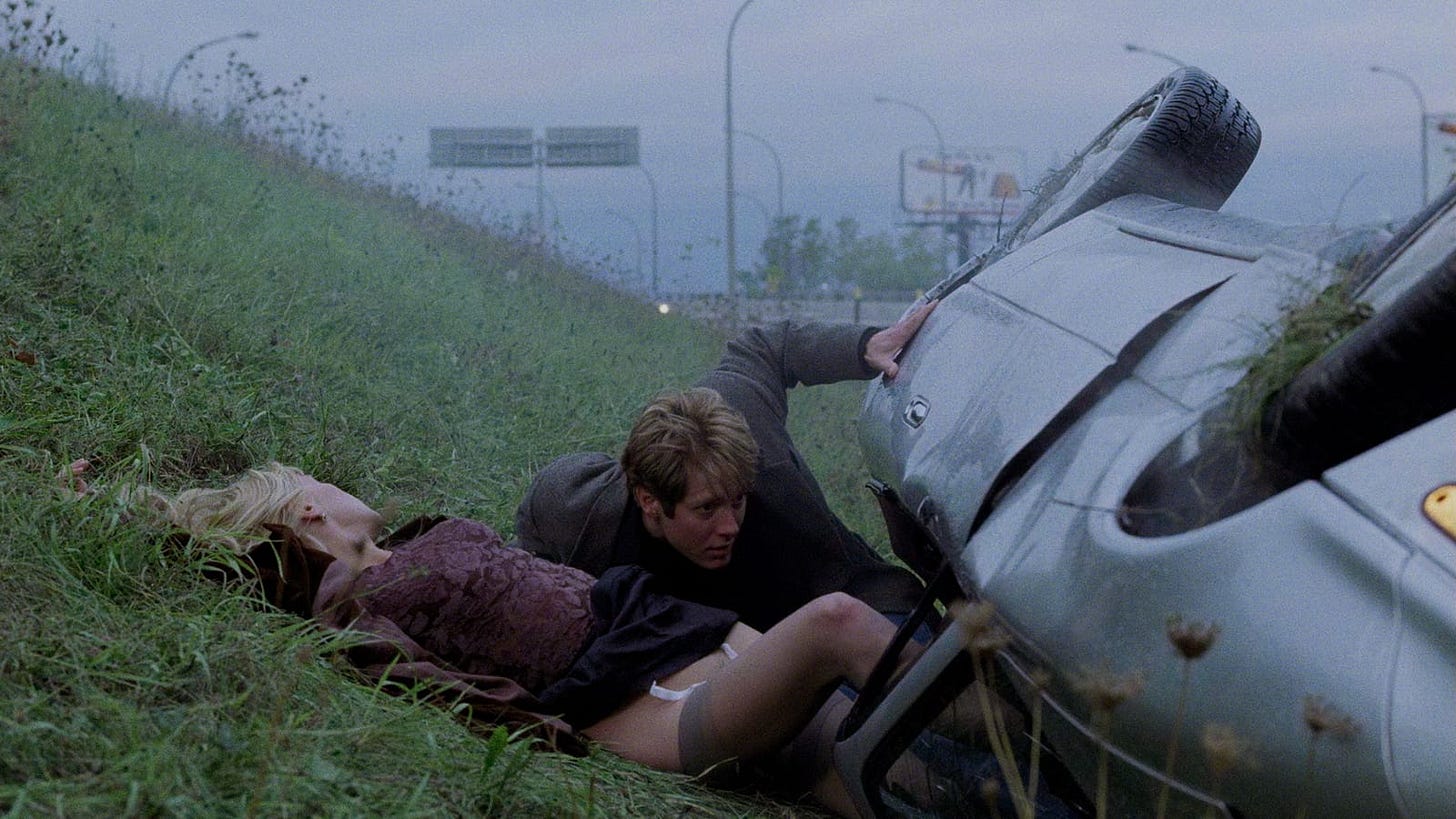It’s my birthday today, a birthday I am more than happy to share with the late, great author J.G. Ballard. So what better excuse to write about his work, and one of my favourite films inspired by one of his works.
J.G. Ballard, born James Graham Ballard on the 15th November 1930, was a British novelist and short story writer known for his distinctive contributions to science fiction and speculative fiction. His works often explored the impact of technological and societal changes on the human psyche, presenting dystopian landscapes and unconventional narratives.
Ballard's writing style is characterized by its clinical and detached tone, reflecting the influence of his early medical training. He practiced medicine briefly before turning to a full-time writing career, a shift that informed his unique approach to storytelling. His experiences growing up in war-torn Shanghai during World War II profoundly influenced his perspective, evident in many of his works that delve into the psychological aftermath of conflict.
One of Ballard's most acclaimed novels is Crash (1973), a controversial exploration of the eroticization of car crashes and the collision between technology, sexuality, and mortality. The novel, later adapted into a film by David Cronenberg, exemplifies Ballard's fascination with the intersection of human desires and the modern world's technological landscape.
Empire of the Sun (1984) is perhaps Ballard's most widely known work, drawing from his childhood experiences as a prisoner of war in a Japanese internment camp during World War II. The novel explores the resilience of the human spirit in the face of adversity and the transformative effects of war on identity.
Ballard's short stories, often published in science fiction magazines, showcased his ability to craft thought-provoking narratives within concise formats. The Drowned World (1962) and The Crystal World (1966) are among his notable early novels that delve into environmental catastrophe and the psychological effects of climate change.
Throughout his career, Ballard challenged conventional notions of storytelling, pushing boundaries with his exploration of the human condition in the context of a rapidly changing world. His legacy continues to influence contemporary writers and filmmakers, as his works remain relevant in their exploration of the complex relationships between technology, society, and the human psyche.
J.G. Ballard's Crash is a provocative novel that delves into the disturbing intersection of technology, sexuality, and mortality. Published in 1973, the book explores the fetishization of car crashes and the psychological impact of modernity on human desires. The narrative follows protagonist James Ballard, who becomes entangled in a subculture fixated on the erotic allure of automobile accidents.
Ballard's writing style in Crash is clinical and detached, a deliberate choice that heightens the novel's unsettling nature. The characters navigate a dystopian landscape where the boundaries between the human body and the cold, mechanical world of automobiles blur. The protagonist's encounters with fellow crash enthusiasts, such as the enigmatic Dr. Robert Vaughan, propel the narrative into increasingly surreal and visceral territory.
One of the central themes of Crash is the interplay between technology and human desire. The characters find a perverse beauty in the destruction of car crashes, seeing in the twisted metal and shattered glass a reflection of their own fractured psyches. Ballard explores how modernity's obsession with speed and technology influences our perceptions of sex, death, and the human body.
The novel's controversial subject matter led to polarized reactions upon its release. Some hailed it as a daring exploration of taboo topics, while others condemned it for its explicit content and unconventional approach to storytelling. Despite the controversy, Crash gained a cult following and solidified Ballard's reputation as a writer unafraid to confront societal norms.
In 1996, Canadian filmmaker David Cronenberg adapted Crash into a film of the same name. Cronenberg's interpretation brought Ballard's visceral narrative to the screen, capturing the novel's provocative essence. The film, like the book, received mixed reactions, with some praising its audacity and others condemning its explicit depiction of taboo subjects.
Cronenberg's Crash is a visually striking and thematically dense work that maintains the novel's focus on the relationships between technology, desire, and the human body. The director's signature style, marked by a fascination with the intersection of the organic and the mechanical, aligns seamlessly with Ballard's vision. The film features a stellar cast, including James Spader, Holly Hunter, and Rosanna Arquette, who deliver compelling performances that bring Ballard's characters to life on the screen.
The adaptation expands on the novel's exploration of the psychological effects of car crashes, portraying the characters as both victims and willing participants in a subculture that thrives on danger. Cronenberg's Crash is a visually and thematically dense work that challenges viewers to confront their own discomfort with the visceral and erotic aspects of the human experience.
J.G. Ballard's Crash and its film adaptation by David Cronenberg are bold explorations of the intersection between technology, desire, and mortality. Both the novel and the film challenge societal norms, pushing the boundaries of conventional storytelling to delve into the darker recesses of the human psyche. Whether experienced on the page or the screen, Crash remains a thought-provoking and controversial work that continues to spark discussions about the impact of modernity on human desires and the boundaries of acceptable art.













This is a special birthday post! HBD 🥳 Always adding to the wonderful art being explored on Substack.
Empire of the Sun I am afraid to say I only saw the movie, Crash at least I read and saw but that is where my familiarity with Ballard ends. Re: Crash I had a conversation once where one person talked about Crash (2004) and I was raving about Crash (1996) at that point in time neither had seen the other movie and we were quite perplexed for a minute 😅 I have since seen Crash (2004). Both movies are worth watching. Happy birthday!